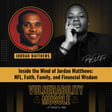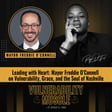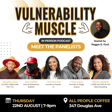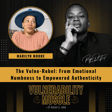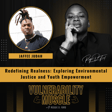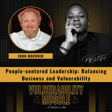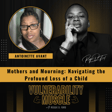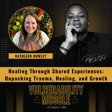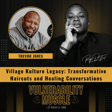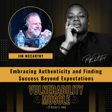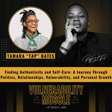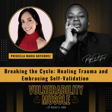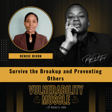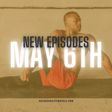
013 - The Funniest Black Comedian In Japan: Evans Musoka
Join host Reggie D. Ford and guest Evans Musoka, a comedian from Kenya living in Japan, in a deeply impactful conversation that touches on cultural backgrounds, comedy, vulnerability, childhood memories, life in Kibera slum and Nairobi city, poverty, mission trips in Kenya, long-term friendships, personal stories of overcoming obstacles, trauma, resilience, grief, family dynamics, asking for help in Japan, therapy, mental wellness, mental health, and comedy. Evans shares his experiences and perspectives, from growing up in poverty in Kenya to adjusting to life in Japan, grappling with grief, and finding solace in comedy. The conversation delves into cultural attitudes towards seeking help, the importance of therapy and mental wellness, and the role of comedy as a coping mechanism. Despite the challenges, Evans finds purpose in making others laugh and invites listeners to join his podcast, where he combines humor with discussions about life and experiences.
⭐️ Evans, a comedian from Kenya, discusses his background and experiences living in Japan for 11 years, performing stand-up comedy in 13 countries, which provides a unique cultural perspective.
⭐️ Comedy and vulnerability are central themes, with Evans sharing childhood memories and experiences of performing stand-up comedy.
⭐️ Evans reflects on his upbringing in the Kibera slum in Nairobi, highlighting poverty and resilience, challenging misconceptions about Nairobi's infrastructure and economy.
⭐️ The impact of mission trips on Kibera residents is discussed, with Evans emphasizing the importance of long-term solutions over short-term relief efforts.
⭐️ Long-term friendships and cultural exchange in Japan are highlighted, underscoring the importance of genuine connections.
⭐️ Personal stories of overcoming poverty and obstacles, including Reggie's journey through sports and academic support, add depth to the narrative.
⭐️ Evans shares his experience with grief and trauma, using comedy as a coping mechanism, and discusses mental health struggles in both Japan and Kenya.
⭐️ Cultural attitudes towards asking for help, particularly in Japan, and the importance of therapy and mental wellness are addressed.
⭐️ Evans invites listeners to his podcast, "Evans Musoka Funny Agenda Comedy Podcast," emphasizing humor and personal experiences as key components.
📲 Connect with Reggie
IG - https://instagram.com/reggiedford
LI - https://linkedin.com/in/reggiedford
Website - https://reggiedford.com
Book - https://amzn.to/487OqJD
Podcast - https://reggiedford.com/vulnerabilitymuscle
📲 Connect with Evans:
IG - https://www.instagram.com/evans_musoka/
YT - https://www.youtube.com/@evansmusokacomedy7887/featured
